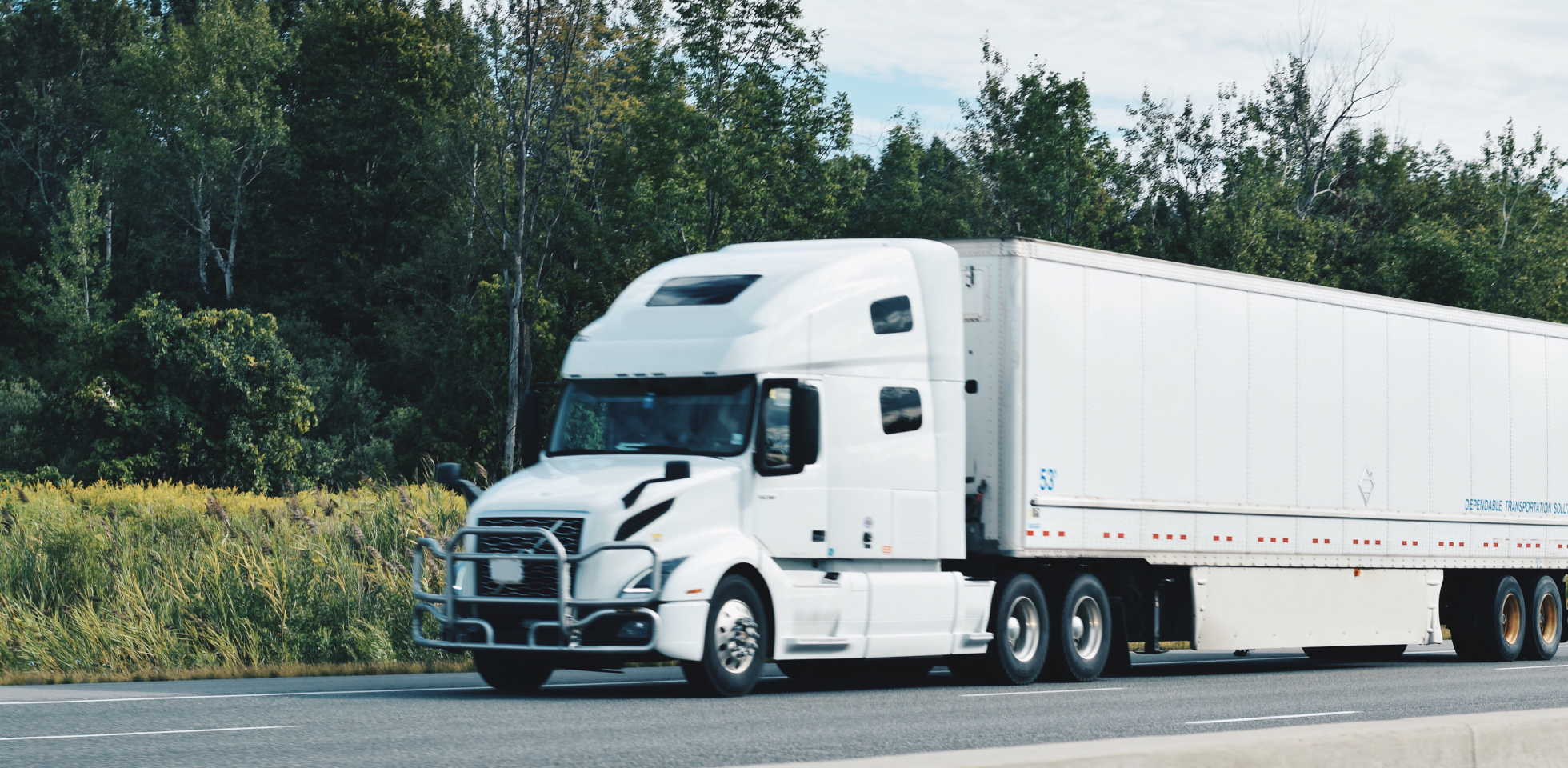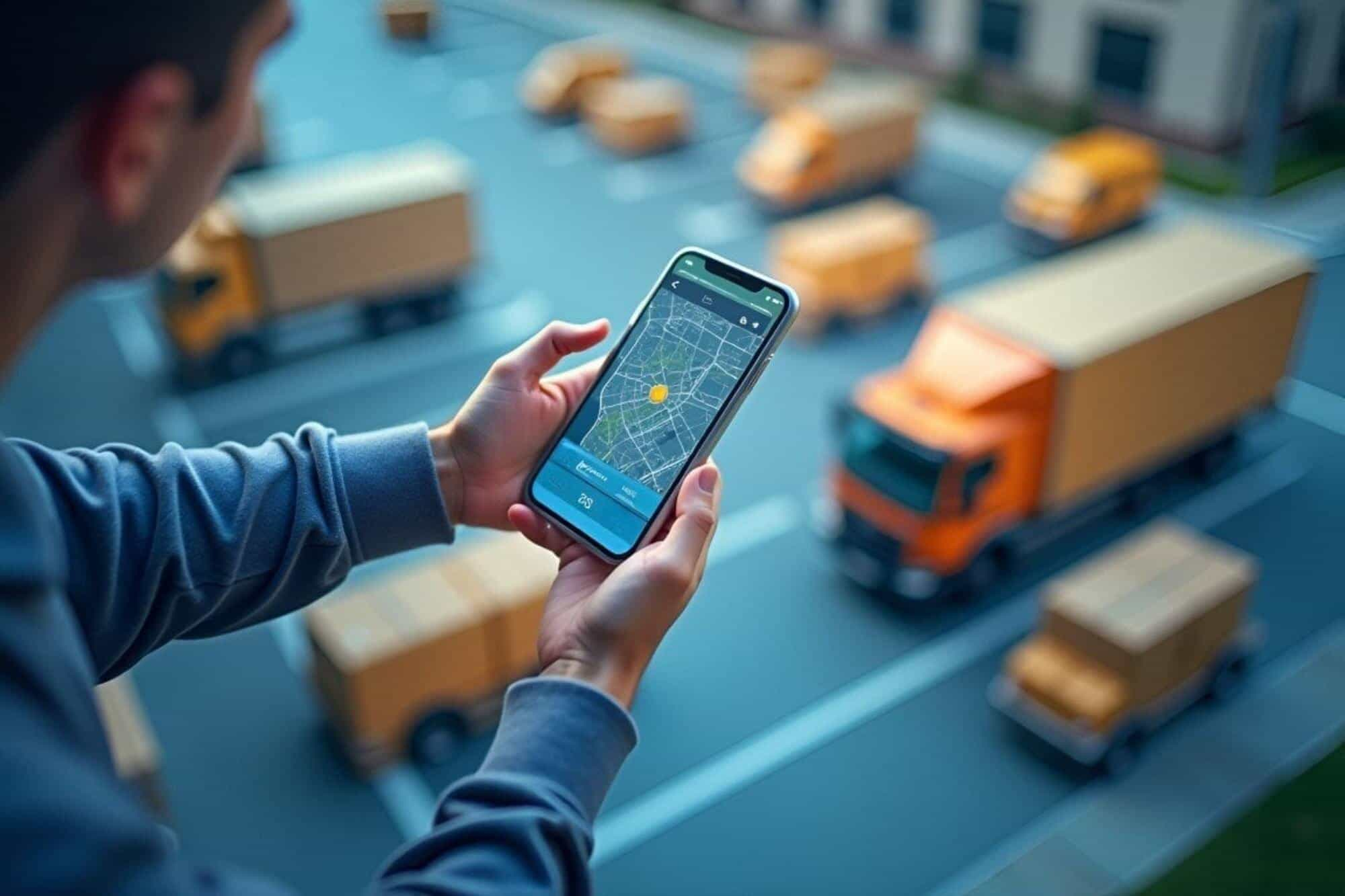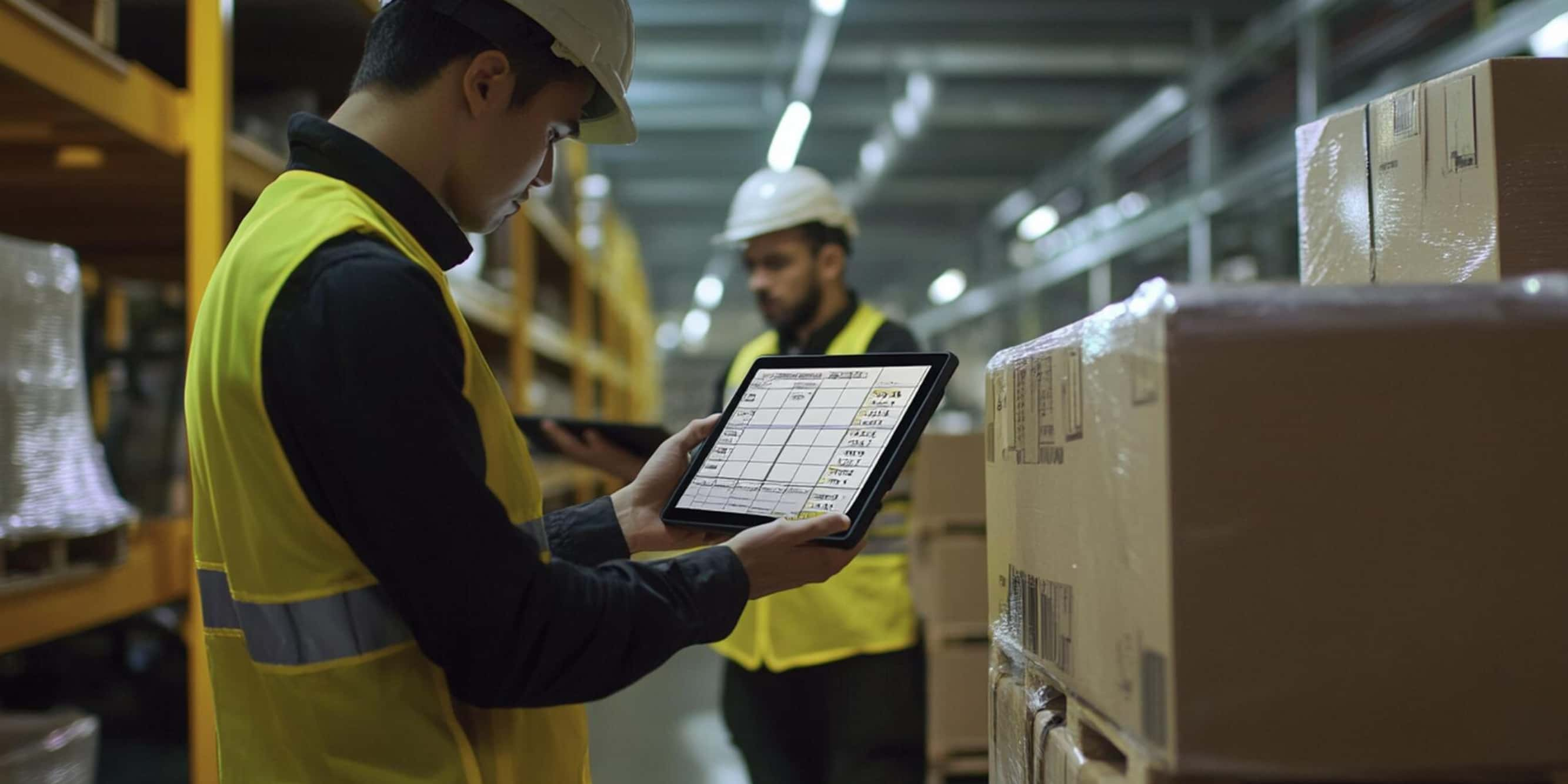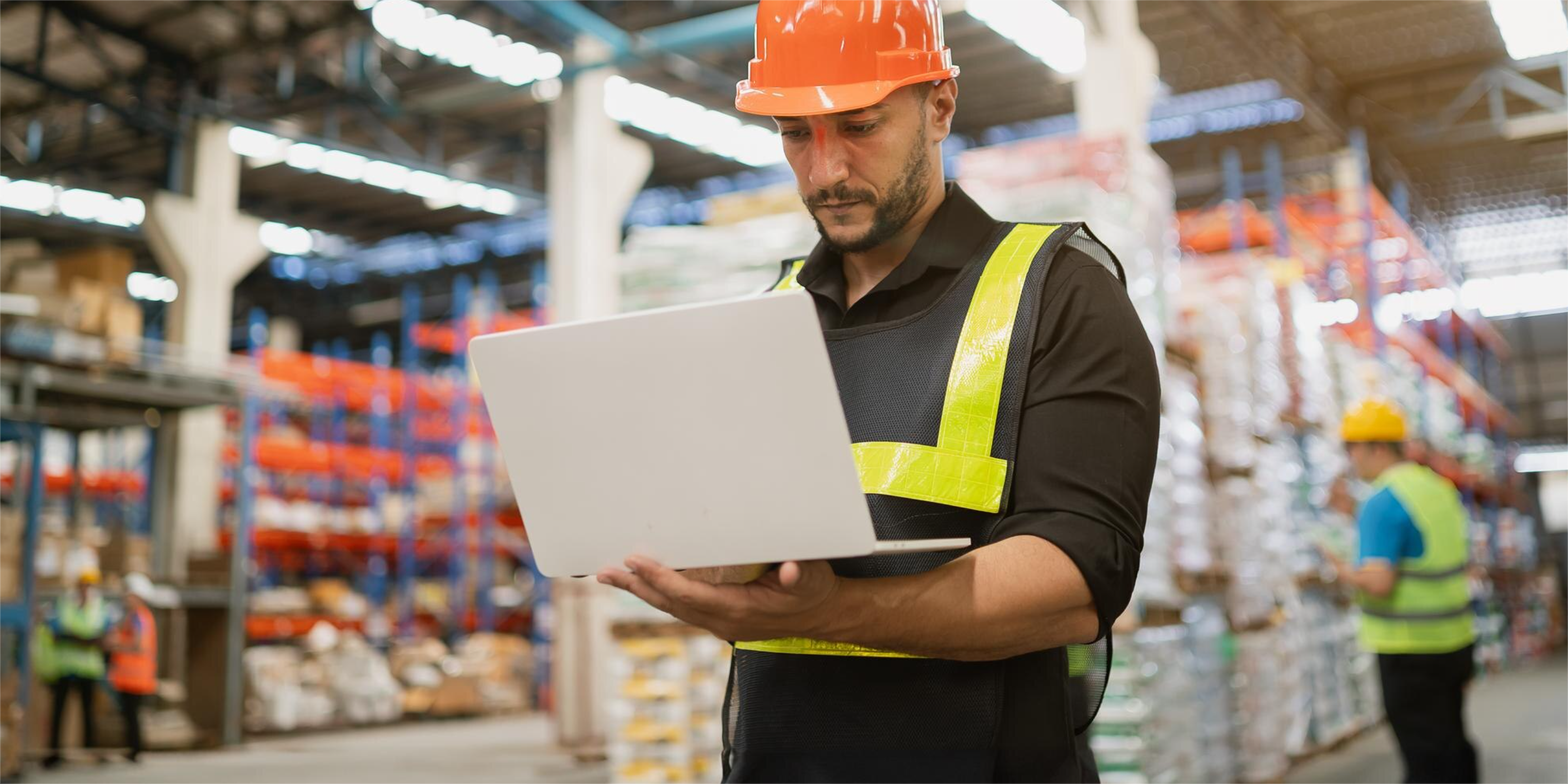Logistics competitiveness is no longer measured solely by the number of vehicles or the length of routes; today, true power lies in the intelligence applied to every operational decision. Executives who lead Latin America's most successful supply chains understand a fundamental reality: fleet management technology makes the difference between surviving and dominating the market. Logistics managers face the constant challenge of maximizing efficiency while ensuring the safety of their operations. Solística by TRAXION positions itself as an architect of comprehensive logistics solutions that revolutionize fleet management through cutting-edge technology.
The strategic evolution of the Transportation Management System (TMS)
From reactive management to predictive intelligence
The traditional fleet management paradigm has undergone a complete metamorphosis. Transportation Management Systems have evolved from basic tracking platforms to intelligent ecosystems that control every aspect of the movement of goods. A TMS provides visibility into daily transportation operations, commercial compliance information and documentation, and ensures the timely delivery of cargo and goods.
This technological transformation responds to a compelling market reality. The market for these systems is expected to expand at a compound annual growth rate (CAGR) of 16.2% between 2019 and 2025. This exponential growth reflects the urgent need for businesses to adopt tools that optimize operations and fundamentally redefine logistics competitiveness.
Transformative capabilities of modern TMS
The implementation of an intelligent Transportation Management System unlocks capabilities that go beyond route management. Executives leading this digital transformation experience tangible benefits:
Real-time visibility into all aspects of the transportation process, enabling immediate decisions based on concrete data. This transparency eliminates traditional blind spots, turning uncertainty into strategic predictability.
Dynamic route optimization using artificial intelligence algorithms reduces operating costs. Leading companies have documented reductions of up to 20% in delivery times by implementing AI for route optimization.
Intelligent automation: The engine of operational efficiency
Digitization as a facilitator of change
The implementation of advanced technologies has completely changed logistics operations. Digitization is one of the most powerful tools for optimizing logistics processes. Transportation Management platforms allow you to view all operations in real time.
Modern TMS systems continue to evolve significantly. Automating order payment through a TMS helps minimize potential billing errors, which are linked to manual activities and susceptible to human error. This digitization of documents, known as Electronic Document Management (EDM), completely transforms the flow of business information.
This digital transformation offers concrete and measurable benefits:
- Cost reduction: A TMS allows you to optimize transport routes, compare carrier rates, and automate administrative processes.
- Improved customer satisfaction: Faster and more accurate deliveries, with real-time updates on shipment status
- Supply chain optimization: Better planning and execution of transportation operations
- Regulatory compliance: Efficient document management and compliance with commercial regulations
Artificial intelligence applied to route optimization
The implementation of artificial intelligence-based systems has revolutionized fleet management. This innovative technology guarantees 100% on-time delivery rates".
AI algorithms analyze millions of variables in seconds: traffic patterns, weather conditions, schedule restrictions, vehicle capacities, enabling continuous and adaptive optimization of operations.
Internet of Things (IoT): Complete visibility and control
Continuous monitoring and proactive management
The integration of IoT sensors in modern fleets provides an unquestionable level of control. The Internet of Things is a critical component in supply chain management, as it gives you ideal control over our logistics activities.
This technology allows for continuous monitoring of:
- Real-time operational status of vehicles
- Temperature and humidity conditions of the cargo
- Operator driving patterns and behavior
- Fuel consumption and energy efficiency
- Preventive maintenance requirements
Advanced telematics for smart fleets
Telematics systems turn every vehicle into a mobile data center. Imagine having around 30 smart devices in each unit, controlling everything from fuel consumption to collision prevention..
Companies such as Fleet Complete and Geotab are implementing advanced telemetry solutions in last-mile fleets in Mexico and Brazil, demonstrating significant improvements in safety and operational efficiency.
Success stories: Transformation in action
Colgate Macro Distribution Center CEDIS
Solística demonstrates its exceptional operational capabilities through Colgate's Macro CEDIS, a state-of-the-art facility featuring:
- 100,000 m² of operational space
- 132,800 pallets storage capacity
- 162 million boxes handled annually
- 1.3 million metric tons processed
This center exemplifies the seamless integration of advanced TMS technology and large-scale operations, with a notable focus on inclusion, where 54% of the workforce are women, including key roles in forklift operations and supervision.
Predictive analytics and data-driven decision making
Business Analytics ventaja competitiva
The power of predictive analytics completely changes fleet management. "Predictive analytics is a powerful tool in logistics. It allows you to anticipate potential problems and fix them before they occur".
This capability allows:
- Anticipate delays and proactively adjust routes
- Predict changes in demand and optimize resources
- Identify patterns of mechanical failures before they occur
- Optimize inventories based on historical trends
Smart dashboards for strategic decisions
Modern TMS systems provide dashboards, reports, and analytics that deliver valuable insights for data-driven decision-making. These dashboards allow managers to visualize the performance of the entire operation in real time, identify areas for improvement, and make informed decisions instantly.
Technological integration and connected ecosystems
Compatibility with enterprise systems
An effective TMS must integrate seamlessly with existing technological infrastructure. This integration allows companies to have complete control over their logistics operations, from planning to final delivery.
The integration includes:
- ERP (Enterprise Resource Planning) systems: Synchronization of financial and operational data
- WMS (Warehouse Management System): Coordination between warehouse and transport
- E-commerce platforms: Delivery and returns management
- Billing systems: Automation of administrative processes
The transformative role of Strategic Sourcing
The evolution toward strategic alliances with logistics operators makes a fundamental difference. As evidenced by the cases of Imagen Macro (2019) and Imagen Ceus (2020), deep collaboration between companies and their logistics operators generates excellent levels of service and added value through specialized services and the exchange of regional experience.
Sustainability and environmental responsibility
Carbon footprint reduction through optimization
Route optimization has a direct impact on sustainability. Each optimized route means less fuel consumed and fewer CO₂ emissions. This reality meets the expectations of consumers and regulators who are more aware of environmental impact.
Sustainable initiatives include the integration of 100% electric trucks in Brazil, in partnership with JAC Motors, vehicles that:
- Travel up to 250 km on a single charge
- They operate almost silently.
- They generate zero CO₂ emissions.
- Significantly reduce oil consumption and waste
The Future of TMS: Emerging Trends
Technologies that will define tomorrow
The technological horizon presents fascinating innovations that will soon become reality:
Blockchain for total transparency: This technology promises to improve transparency and traceability throughout the supply chain.
Automation and robotization: From automated warehouses to autonomous vehicles, these technologies have fundamentally changed the movement of goods.
Evolutionary Machine Learning: Systems will continuously learn, adapting to changing patterns and improving their performance with each operation.
Successful implementation: Keys to transformation
Critical success factors
For successful implementation of intelligent TMS, managers should consider:
- Specific needs assessment: Identify unique pain points in the operation
- Appropriate technology selection: Choose a TMS that suits current and future needs.
- Staff training: Ensure that the team is prepared to take advantage of all capabilities.
- Culture of innovation: Promoting an open mindset toward change and continuous improvement
- Continuous measurement and adjustment: Establish clear KPIs and monitor progress constantly.
Organizational change management
The implementation of a TMS requires structured change management. As successful cases demonstrate, it is essential to create a shared vision, adequately train the team, and maintain constant communication throughout the transition process.
The urgency of the digital age
The implementation of an intelligent transport management system is a fundamental strategic decision that changes business competitiveness.
Solística by TRAXION emerges as the ideal strategic partner for this transformation, combining proven expertise, robust infrastructure, and cutting-edge technology. The integration of 24/7 intelligent monitoring, advanced predictive analytics, process automation, and a strong commitment to sustainability creates a logistics ecosystem that drives sustainable business growth.
Discover how Solística by TRAXION's comprehensive solutions can transform your transportation operations into a decisive advantage. Contact us today and take the first step toward the future of smart logistics.
Sources consulted:
- Maximizing logistics efficiency: Keys to implementing a successful TMS
- Transportation innovation: Route optimization and efficient management
- Logistics Transformation: How route optimization is revolutionizing transportation in Latin America
- TMS software: how to reduce costs and improve delivery times
- Route optimization: The technological revolution driving logistics efficiency in Latin America







